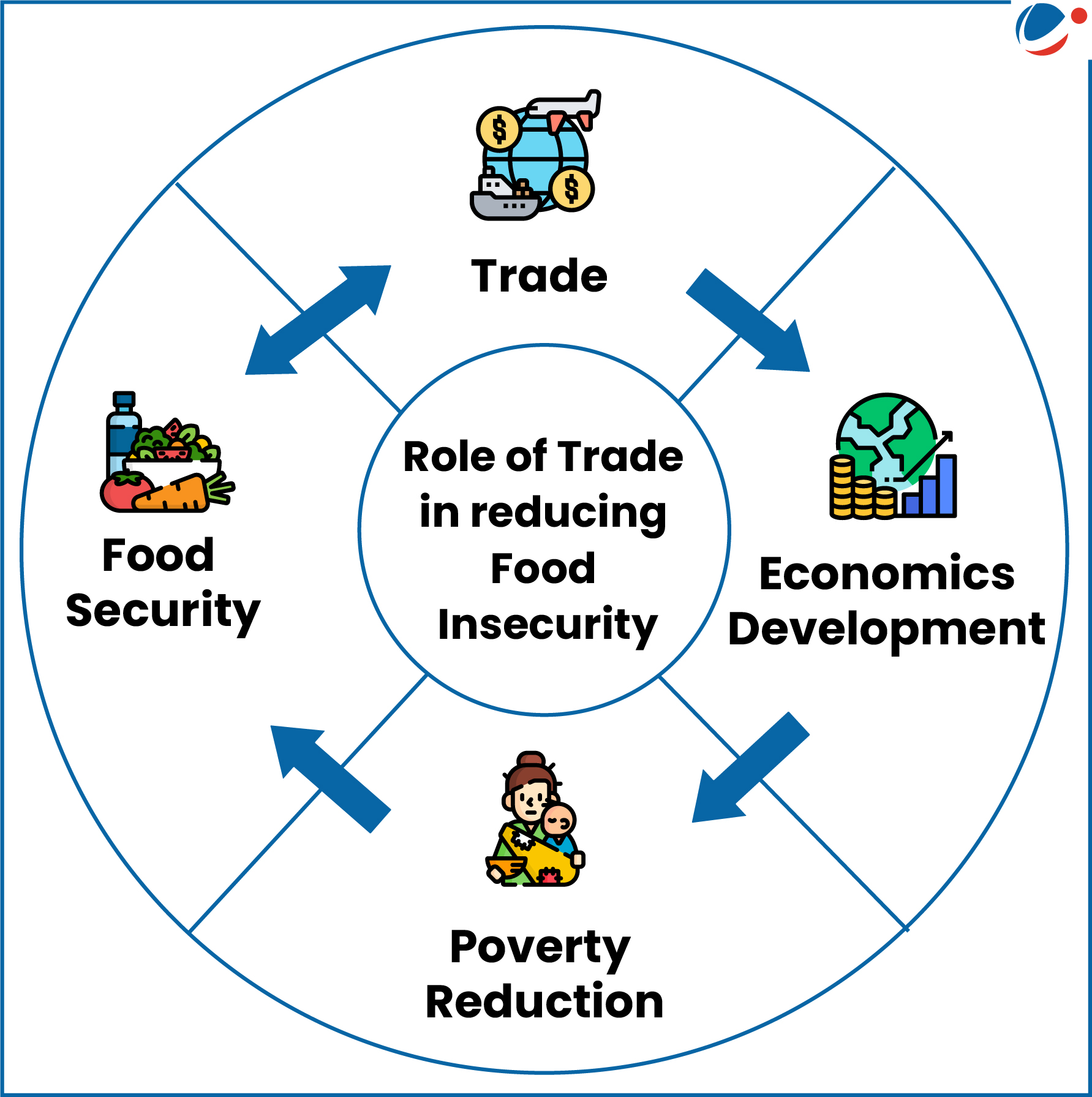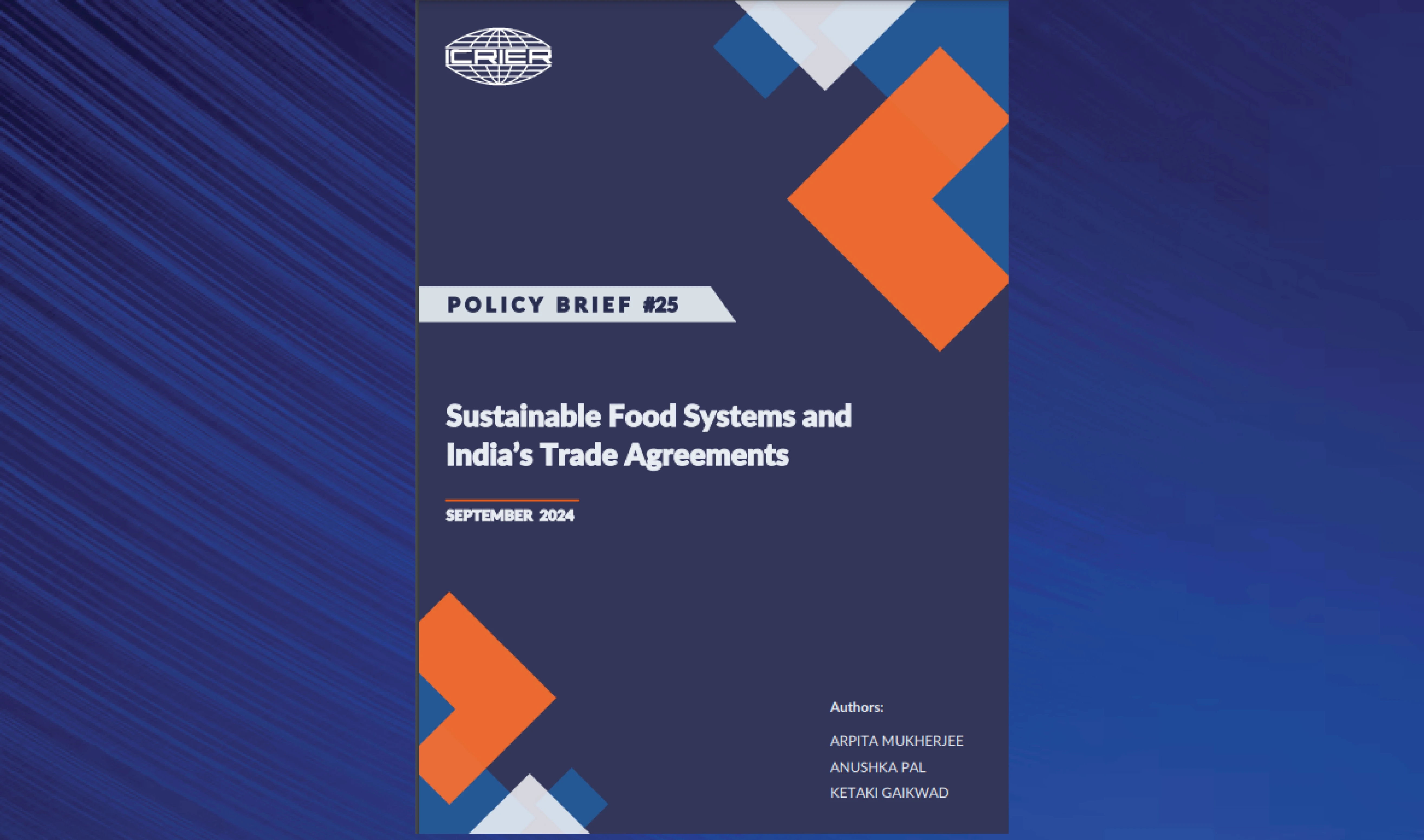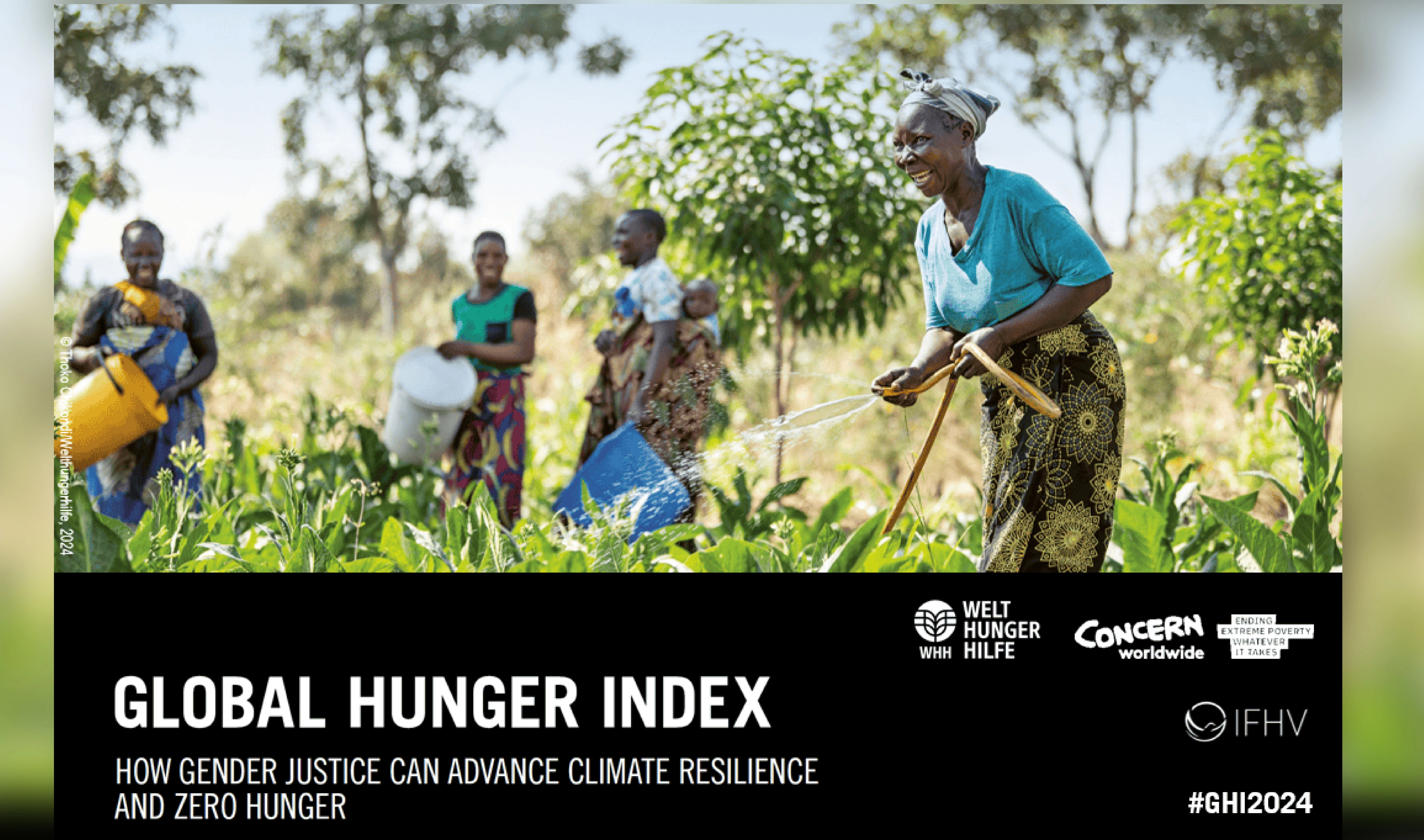The report analyses various drivers of food insecurity and how can trade play a mitigating role in addressing these challenges
Role of Trade
- Sustainable supplies can ensure food availability: E.g. 30% of Africa’s cereal needs are met through imports
- Stabilizing prices and markets: E.g. Black Sea Initiative (brokered by UN and Türkiye) during Russia-Ukraine war facilitated food and fertilizer exports
Challenges
- Higher costs: E.g. non-tariff measures, such as sanitary standards, can increase food import costs by 20%.
- High Import dependency: It exposes countries to global price hikes and supply chain disruptions.
- Rising transportation costs: It affects developing and least developed countries disproportionately.
Recommendations
- Reach a “Short Term Export Facilitation Mechanism to Combat Severe Food Insecurity” at international forum, such as WTO
- Reduce trade barriers & boost export capacities of food insecure countries.
- Invest in trade infrastructure such as ports, transport networks and storage facilities to shorten supply chains and reduce vulnerabilities to global disruptions especially for low-income countries.
- Support climate-smart and sustainable farming in developing countries.
 Factsheet
Drivers of global hunger
|





